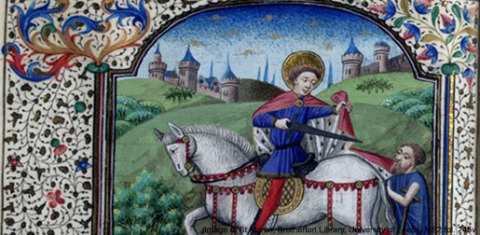Svetlana Yatsyk Spoke at the International Medieval Congress in Leeds

The International Medieval Congress organized by the University of Leeds Institute for Medieval Studies is the largest meeting of medievalists in Europe. This year, according to the organizers, the event attracted about 2400 people from 46 countries.
The key topic of the Congress in 2015 was ‘Reform and Renewal’. Svetlana Yatsyk participated in the ‘Reforming Intellectual Traditions’ session, as part of which she spoke on July 8, 2015. She presented the results of her study of John of Wales’s writings in her report ‘The Answer of John of Wales to the “Problem of Paganism”’. The paper, which tried to reconstruct John’s views on the knowledge available to ancient philosophers, evoked interest in the audience and resulted in a lively and fruitful discussion, which lasted an hour and a half and continued informally.
Call for papers for 2016 Congress has already been announced; it will be held from July 4 – 7, 2016, and its key topic will be ‘Food, Feast & Famine’.
See the IMC 2015 programme here.